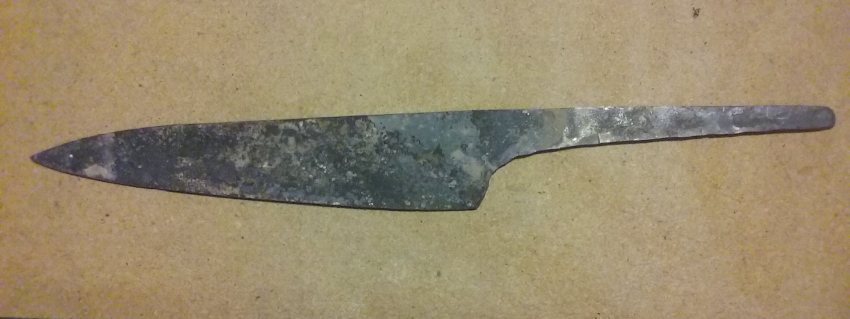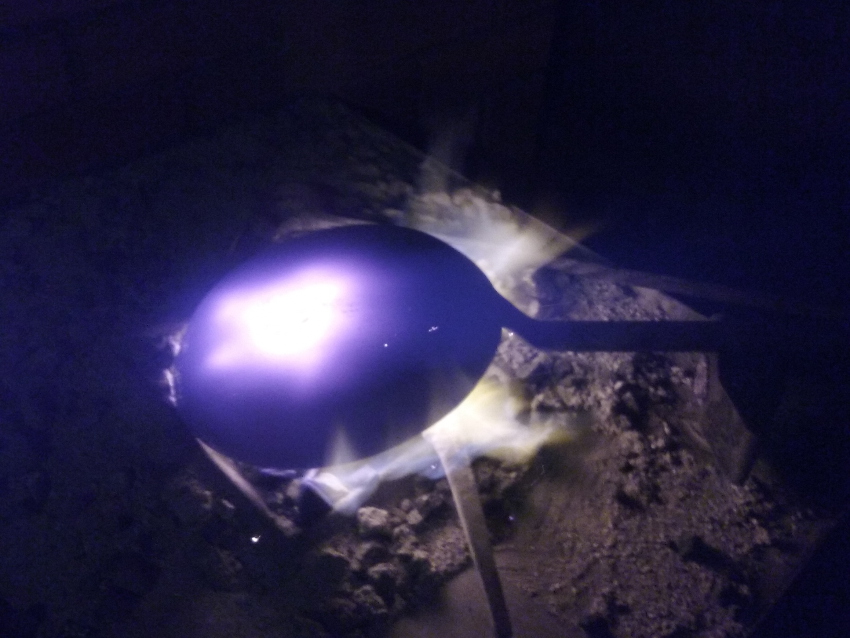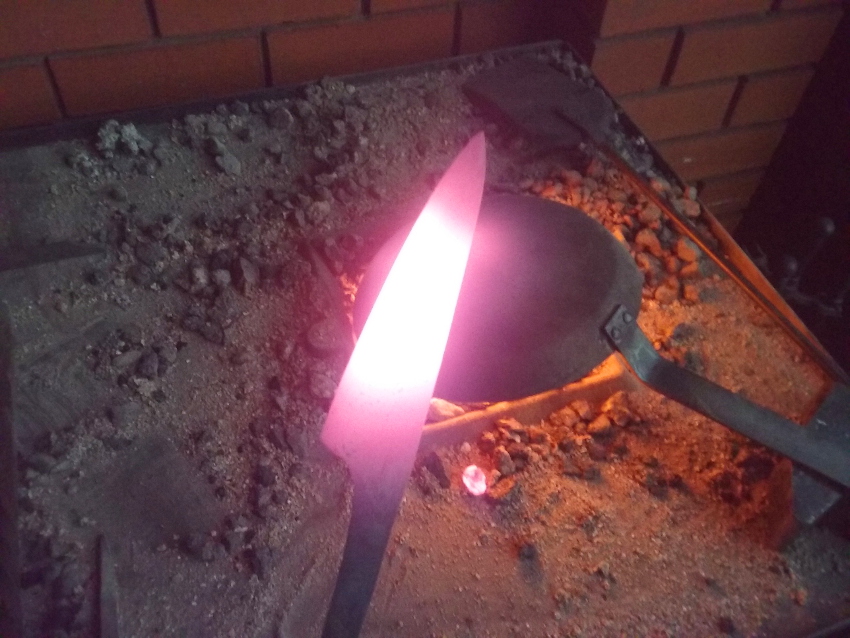Kippington
A small green parrot
I'd like to post pictures of my latest project. It failed to hold up to the rigors of heat-treating.
I'm a hobbyist bladesmith. I put about 8 hours of hand hammering and grinding into this knife before quenching it in water. Unfortunately I got the 'tink' of death, with two major cracks in it. This is the second time (of two) a blade of mine has 'died' during the quench... 100% rate of failure. :shocked3:



I'm posting this out of pure frustration, maybe the members here can appreciate the effort that goes into broken garbage.
Feel free to add any comments: Advice and criticism is welcome.
I'm a hobbyist bladesmith. I put about 8 hours of hand hammering and grinding into this knife before quenching it in water. Unfortunately I got the 'tink' of death, with two major cracks in it. This is the second time (of two) a blade of mine has 'died' during the quench... 100% rate of failure. :shocked3:



I'm posting this out of pure frustration, maybe the members here can appreciate the effort that goes into broken garbage.
Feel free to add any comments: Advice and criticism is welcome.




